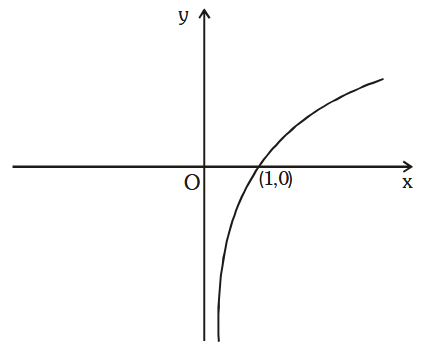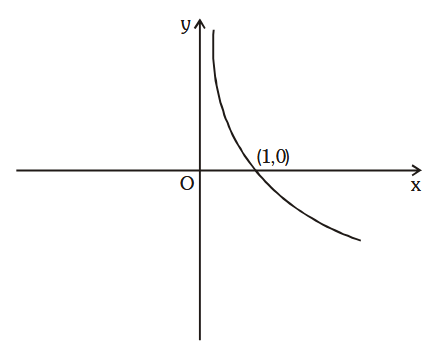Algebraic Identities and Fundamentals of Maths
1/96
Earn XP
Description and Tags
Flashcards made from Maths Unplugged's crash course videos. Suitable for those writing JEE. Answer only with definition (I've included cards for both ways around). There are topics not covered in MU as well, marked.
Name | Mastery | Learn | Test | Matching | Spaced | Call with Kai |
|---|
No analytics yet
Send a link to your students to track their progress
97 Terms
(a+b)²
a²+b²+2ab
(a-b)²
a²+b²-2ab
a²+b²+2ab
(a+b)²
a²+b²-2ab
(a-b)²
(a+b)(a-b)
a²-b²
a²-b²
(a+b)(a-b)
a^{m^n}
a^{m^n}
(a^m)^n
a^{mn}
(\Sigma a)²
\Sigma(a²)+2\Sigma(a_1a_2)
\Sigma(a²)+2\Sigma(a_1a_2)
(\Sigma a)²
\Sigma a_1a_2
\dfrac{(\Sigma a)²-\Sigma (a²)}{2}
\dfrac{(\Sigma a)²-\Sigma (a²)}{2}
\Sigma a_1a_2
\Sigma a_1a_2 = \dfrac{(\Sigma a)²-\Sigma (a²)}{2}
How is this derived?
By using identities like (a+b)² and (a+b+c)².
(1+a)(1+a²)(1+a^4)(1+a^8)…(1+a^n)
\dfrac{1-a^{2n}}{1-a}
\dfrac{1-a^{2n}}{1-a}
(1+a)(1+a²)(1+a^4)(1+a^8)…(1+a^n)
\dfrac{1-a^{2n}}{1-a}=(1+a)(1+a²)(1+a^4)(1+a^8)…(1+a^n)
How is this derived?
Multiple and divide RHS by (1-a), then you use (a+b)(a-b)=a²-b²) to cancel out all the consecutive terms.
(a+b+c)²
a²+b²+c²+2(ab+bc+ca)
a²+b²+c²+2(ab+bc+ca)
(a+b+c)²
(a+b+c+d)²
a²+b²+c²+d²+2(ab + ac + ad + bc + bd + cd)
(a+b)³
a³+b³+3ab(a+b)
a³+b³+3ab(a+b)
(a+b)³
a²+b²+c²+d²+2(ab + ac + ad + bc + bd + cd)
(a+b+c+d)²
a³+b³
give both forms of this.
(a+b)³-3ab(a+b)
(a+b)(a²+b²-ab)
(a+b)³-3ab(a+b)
a³+b³
(a+b)(a²+b²-ab)
a³+b³
(a-b)³
a³-b³-3ab(a-b)
a³-b³-3ab(a-b)
(a-b)³
a³-b³
give both forms
(a-b)³+3ab(a-b)
(a-b)(a²+b²+ab)
(a-b)(a²+b²+ab)
a³-b³
(a-b)³+3ab(a-b)
a³-b³
a²-ab+b²
Give all 3 forms
(a+b)²-3ab
(a-b)²+ab
\dfrac{a³+b³}{(a+b)}
\dfrac{a³+b³}{(a+b)}
a²-ab+b²
a²+ab+b²
give all 3 forms
(a+b)²-ab
(a-b)²+3ab
\dfrac{a³-b³}{a-b}
\dfrac{a³-b³}{a-b}
a²+ab+b²
a^4-b^4
(a²+b²)(a²-b²)
a^4+b^4
(a²+b²)²-2a²b²
a²+b²
(a+b)²-2ab
a^4+4b^4
(a²+2b²-2ab)(a²+2b²+2ab)
derive simply and simplify
a^4+a²+1
(a²+a+1)(a²-a+1)
(a²+a+1)(a²-a+1)
a^4+a²+1
a^8+a^4+1
(a^4+a²+1)(a^4-a²+1)
(a^4+a²+1)(a^4-a²+1)
a^8+a^4+1
ab+bc+ca
\Big(\dfrac1a+\dfrac1b+\dfrac1c\Big)abc
\Big(\dfrac1a+\dfrac1b+\dfrac1c\Big)abc
ab+bc+ca
a²+b²+c²
(a+b+c)²-2(ab+bc+ca)
(a+b+c)²-2(ab+bc+ca)
a²+b²+c²
a³+b³+c³
(a+b+c)(a²+b²+c²-ab-bc-ca) + 3abc
(a+b+c)(a²+b²+c²-ab-bc-ca) + 3abc
a³+b³+c³
If a+b+c=0, what is a³+b³+c³=?
a³+b³+c³=3abc
if a³+b³+c³=3abc, then what can you infer? (2 things)
either a+b+c=0
or a=b=c
a²+b²+c²-ab-bc-ca
Give all 3 forms of this.
=\dfrac{1}{2}[(a-b)²+(b-c)²+(c-a)²]
=(a+b+c)²-3(ab+bc+ca)
=\dfrac{(a+b+c)³-3abc}{a+b+c}
if a²+b²+c²-ab-bc-ca=0, what can you infer (2 things)?
that a³+b³+c³=3abc
and (a-b)²+(b-c)²+(c-a)²=0 which means a=b=c
if a²+b²+c²=0, what can you infer?
a=b=c=0
(a²-b²)³+(b²-c²)³+(c²-a²)³=?
How do you derive this?
3\left(a^2-b^2\right)\left(b^2-c^2\right)\left(c^2-a^2\right)
This is like X³+Y³+Z³.
Since X+Y+Z=0, then X³+Y³+Z³=3XYZ.
What can you infer from (x-a)²+(y-b)²+(z-c)³=0?
x=a,y=b,z=c
What can you infer from (x-a)²+(x-b)²+(x-c)³=0?
a=b=c
if not, the equation cannot exist
abc+(ab+bc+ca)+(a+b+c)+1
(a+1)(b+1)(c+1)
(a+1)(b+1)(c+1)
abc+(ab+bc+ca)+(a+b+c)+1
abcd+(a+b+c+d)+(ab+ac+ad+bc+bd+cd)+(abc+abd+acd+bcd)+1
(a+1)(b+1)(c+1)(d+1)
(a_1+1)(a_2+1)(a_3+1)+…+(a_n+1)
1 + \Sigma a_1 +\Sigma (a_1a_2)+\Sigma (a_1a_2a_3)+…+(a_1a_2a_3…a_n)
1 + \Sigma a_1 +\Sigma (a_1a_2)+\Sigma (a_1a_2a_3)+…+(a_1a_2a_3…a_n)
(a_1+1)(a_2+1)(a_3+1)+…+(a_n+1)
(a+b+c)³
a³+b³+c³+3(a+b)(b+c)(c+a)
a³+b³+c³+3(a+b)(b+c)(c+a)
(a+b+c)³
(a+b+c)³=a³+b³+c³+3(a+b)(b+c)(c+a)
How do you derive this?
consider X=a+b and Y=c and solve (X+Y)³.
(a-b+c+d)(a+b-c+d)(a+b+c-d)(b+c+d-a)
How do you approach this?
(a+b+c+d-2b)(a+b+c+d-2c)(a+b+d+c-2d)(a+b+c+d-2a)
Let a+b+c+d=x)
then,
=(x-2a)(x-2b)(x-2c)(x-2d).
Not from MU
Every prime number greater than 3 is in the form of _____, but the converse need not be true.
6k\pm1
Not from MU
When given a question where a variable is a prime number, what can you do? Just like what is the first thing that should pop into your head?
Can factorise it, and the factors are always going to be 1 and itself.
Not from MU
If f(x) is divided by ax-b . what form will the remainder be in?
mx+n

Not from MU
How would you approach this question?
Group some terms, it looks like componendo dividendo, apply that.
Not from MU
What is the relation between |a+b| and |a|+|b|?
|a+b|\le|a|+|b|
Not from MU
What is the relation between |a-b| and |a|-|b| ?
|a-b|\ge|a|-|b|
Not from MU
What are the limitations of logarithms? \log_aN
(three limitations)
a>0
N>0
a\ne 1
What is \log_{a^m}b^n ?
\dfrac{n}{m}\log_ab
What is \log_x a + \log_x b?
\log_x ab
What is \log_x a - \log_x b ?
\log_x \dfrac{a}{b}
What is \log_aa=?
1
What is \log_a1=?
0
What is \dfrac{\log_ab}{\log_ac}=?
\log_cb
What is a^{\log_ac}=?
c
What is a^{\log_bc}=?
c^{\log_ba}
If in \log_ab, both a and b are on the same side of 1 (on the number line), then will the value of log be negative or positive?
positive
If in \log_ab, both a and b are on different sides of 1 (on the number line), then will the value of log be negative or positive?
negative
Under what conditions will \log_ab>1 be true?
if b>a and a>1.
Not from MU
What is \log_ea in terms of \log to the base 10?
\log_ea=2.303\times\log_{10}a
Not from MU
What is \dfrac{1}{\log_ab}?
\log_ba
Not from MU
What is \log_{10}a in terms of \log to the base e?
\log_{10}a=0.434\times\log_ea
Not from MU
What does the graph for y=\log_ax look like when a>1?

Not from MU
What does the graph for y=\log_ax look like when a<1?

Not from MU
If \log_ax < \log_ay, when is x>y? When is x<y?
x<y when a>1
x>y when a<1
Not from MU
when is x+\dfrac1x\ge2?
when x is a positive real number
Not from MU
When is x+\dfrac1x\le2?
when x is a negativ real number
Not from MU
What is the approximate value of \log_{10}2?
0.3010
Not from MU
What is the approximate value of \log_{10}3?
0.4771
Not from MU
What is the approximate value of \log_{e}2?
0.693
Not from MU
What is the approximate value of \log_{e}10?
2.303
Not from MU
if \log_ax>p, what happens when a>1?
x>a^p
Not from MU
if \log_ax>p, what happens when 0<a<1?
0<x<a^p